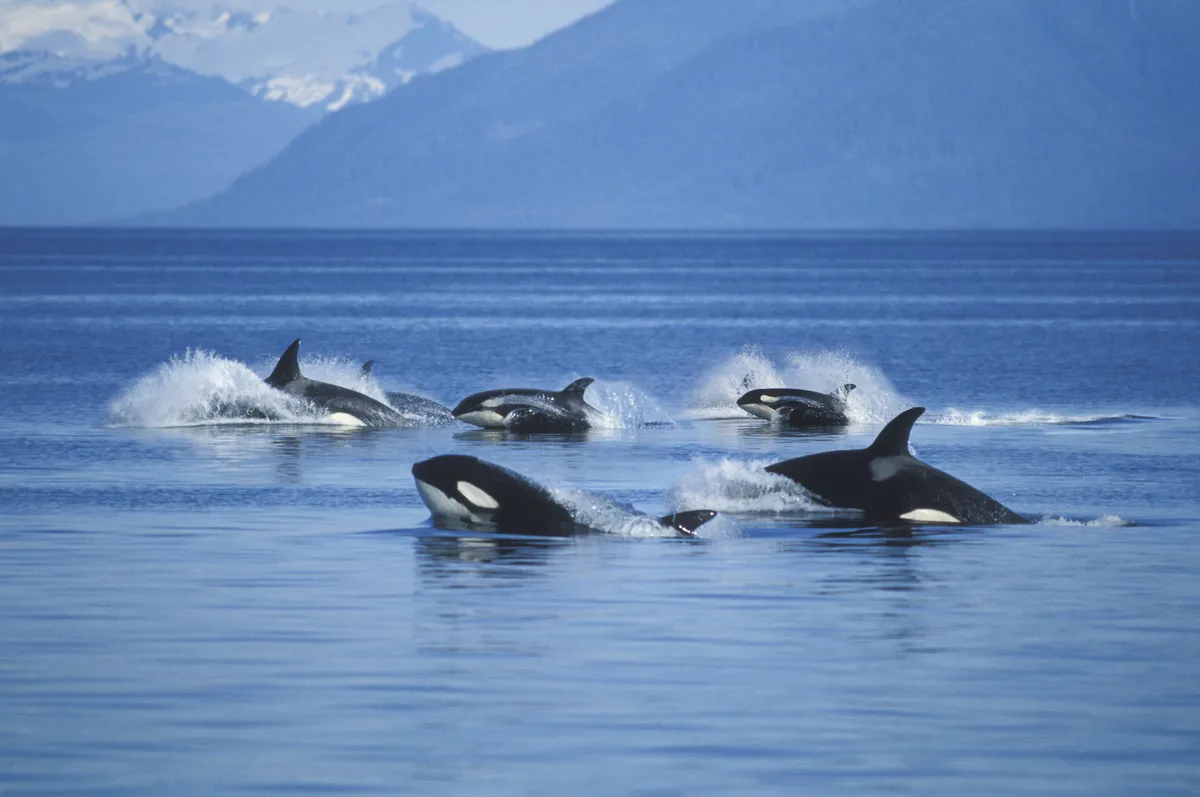It’s an odd thing to find kinship with an orca, or killer whale (Orcinus orca). The most souped-up member of the dolphin family is a nine-tonne apex predator that cunningly hunts most marine animals. Not even great white sharks are safe.
Our lives couldn’t appear to be more different. Yet we have a very unusual trait in common: females go through the menopause.
As a general rule, evolution takes a pretty merciless view of a loss of fertility. Of 5,000 mammals, the females of only five are known to live well beyond their reproductive capacity: four species of toothed whale and us. Why?

The menopause and social hierarchy in orca pods
Originally, it was assumed that pods of killer whales were led by the biggest male, and the smaller females made up his harem. We now understand that these highly social cetaceans live in extended family groups. Their leaders are not only female, but are the post-menopausal grannies.
Learn more about orcas and whether other animals menstruate:
- Orca guide: diet, how they hunt, and what they're related to
- Top species to photograph in British Colombia
- Do any non-human animals menstruate?
Orcas often travel in pods. © Getty
These wise old matriarchs are living libraries for the environmental and cultural knowledge that keeps their clan alive. Orcas in captivity have been shown to have phenomenal photographic memories, remembering testing patterns after 25 years.
Orca brains are the heaviest on the planet, with a proportionally bigger cerebrum than humans. Female orcas have a higher brain-to-body ratio than males, giving them even more computational power – and helping matriarchs recall fishing spots.
Why do orca whales go through the menopause?
The close family relationship orca matriarchs have with their sons is the key to their menopausal riddle. Orcas are unique amongst social mammals in that neither sons nor daughters permanently leave their birth group. This means that orca females end up competing across the generations for the extra resources needed during pregnancy and lactation.
So orca matriarchs stop breeding at about 40 years old and invest in their sons instead, whose offspring will be born outside of the family group to unrelated females and therefore less of a drain on pod resources.
Whether this familial conflict existed amongst early humans remains a mystery. But orca males are known for being massive ‘mummies’ boys’, kept alive by their post-menopausal matriarch’s hunting handouts.
Main image: Orca pod. © Getty